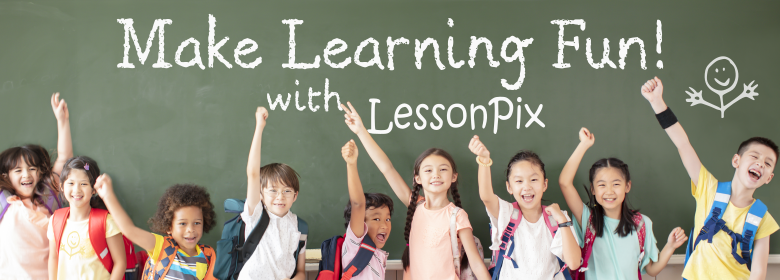
Make Learning Fun
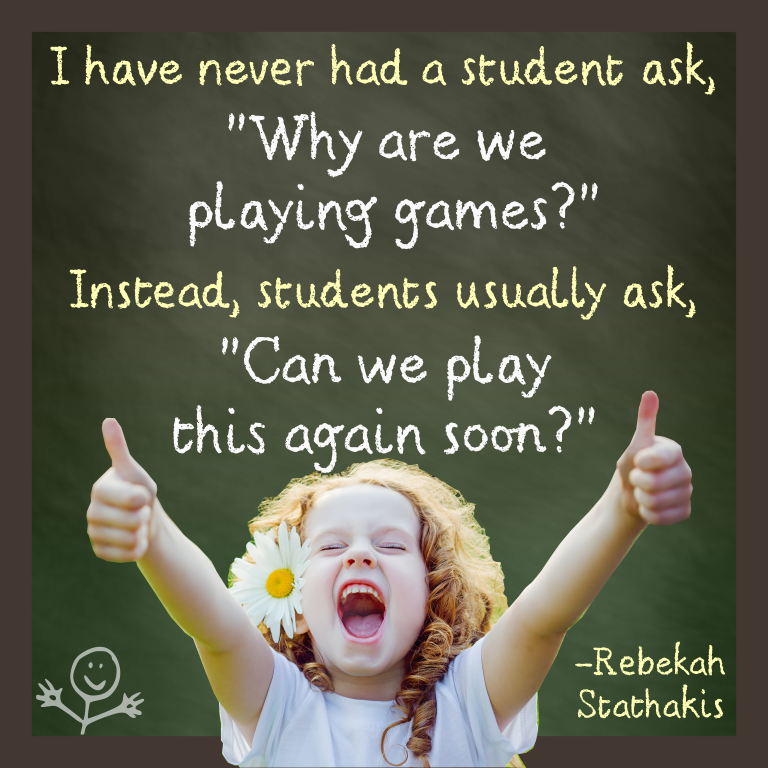
Momma said - "don't play with your food!" But today we are going to play with our work!
According to research, using games in teaching can help increase student participation, foster social and emotional learning, and motivate students to take risks. Embedding learning objectives in fun activities is very powerful!
Many learning objectives are met through practice and repetition. Using multiple modalities allows content to "enter" through more than one sesnse - eyes, ears, movement, spatial-manipuation, tactile, scents, etc. Play is the brain's favorite way to learn - so use it!
This article provides MANY activities with LessonPix to embed learning in fun. They are divided into three types:
Large Group Activities
Bingo!
An easy game to create for any number of players. Many teachers use vocabulary words, curriculum concepts, articulation practice, sight words, and more. It's simple - and provides fun practice for listening skills, processing, scanning, decoding or reading, marking, and visual perceptual skills in finding "Bingo!"
Scavenger Hunt!
There are many ways to play scavenger hunt in a classroom setting. This activity involves movement - helping to process within a define setting, collaborate with peers, and provide a sensory break.
Each week, I would hide pictures around the room with target letters or sounds. Students would find a set number (4-5 each) and place it on the chart paper. Then together we would read the cards found. Display the chart for practice reading skills and recalling the lesson.
You may also use checklist to find objects that match (like shapes), hidden items, or items in nature.
I loved to use a checklist on parent night for students to show their families specific items in class (writing notebook, science journal, calendar area, art display, etc.)
Some items to be found can be given in clues or riddles. For example students can look for items that match a shape or color.
Many other templates at LessonPix work well in finding items in a scavenger hunt.
Let's Make a Class Book!
Class Books compile students' works on a topic. Coloring Sheets templates allow students to color and write - great for making books such as story vocabulary or information on a topic. Add other mediums for more interesting pages such as fethers, googley eyes, textured drawings, or stickers.
Here are pages for students to write about different sports in the Summer Olympics.
I Have Who Has
I have Who has is a fun game that involves listening and speaking in turn. Someone reads a card that says "I Have..." and the card can be customized to show letters, vocabulary, or even math problems. "I have blue, who has red" or "I have 5, who has 2+6".
Here are 3 games: "If You Give A Mouse a Cookie" story vocabulary, solar system, and beginning letter sounds.
Small Group
Puppets
Put visuals on a stick! Using characters from a book, students can recall events or retell stories using puppets. This is a fabulous way to embed language, vocabulary, and comprehension skills in fun.
I Spy
Similar to a scavenger hunt, I Spy uses skills of observation, visual processing and language to find things in a specified location. Used in a small group, children take turns giving clues to their peers to help them guess. This game adds a component of listening and deduction reasoning and turn taking to learning objectives.
Use visual props to help students come up with ideas to "spy", give clues, or support language.
You may also have them "spy" from a collection of target visuals related to content area. "I spy a food that is red".
Memory Matching
Memory Matching games promote laguage, attention and memory, turn taking, and couting. Add curriculum facts or concepts to add in more on-target learning objectives. Cut out the cards and place upside-down. Students take turns to find a match.
Here students can match pictures and learn facts about Martin Luther King Jr.
Check out more matching activities.
Play Tic Tac Toe!
Students of all ages enjoy a game of tic tac toe! Why not place reading words or vocabulary concepts in the square for students to say as they mark X or O.
Dots and Boxes
In this game, students take turns drawing a line to connect 2 dots (vertical or horizontal) If you close the box, mark an X in the box (and name the picture). Person with the most X's wins!
Tracing with Cars
Developing writing skills takes practice and play! Occupational therapists advise to "write" strokes, letters, and numbers with various mediums (sand, shaving cream, on an easel, wiki sticks, paint, sidewalk chalk, etc.)
One fun activity to practice writing is by using toy cars. Make obstacle paths with paint on table or draw out "streets" to trace. LessonPix has all of the street letters and street numbers for quick and easy practice.
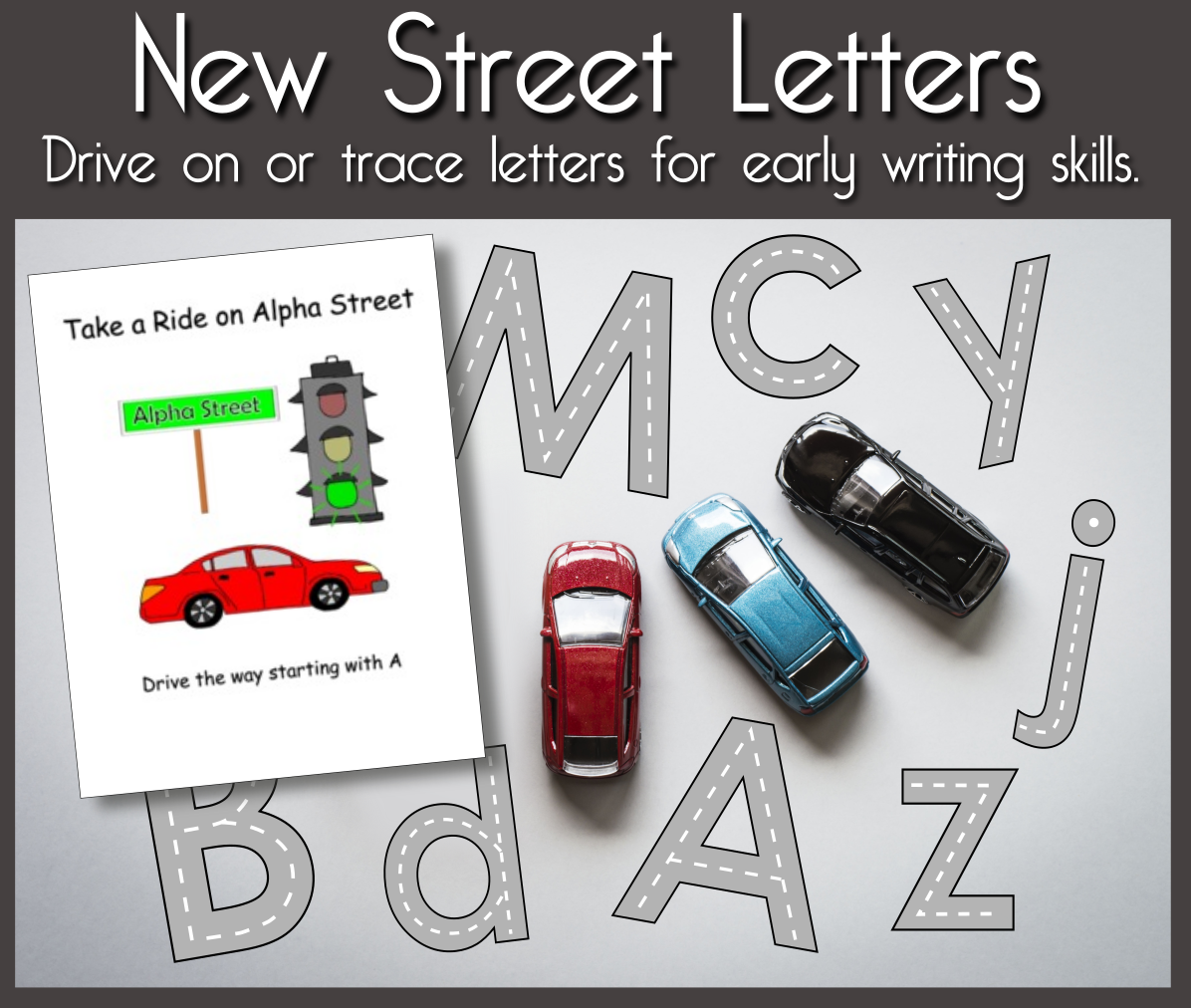
Play a Board Game
Create a custom board game. LessonPix has so many to choose! Learn more about our board games here. These games promote turn taking, one-to-one correspondence, counting, managing frustrations, perserverence, and working toward a goal.
Feed Me Faces
Younger students love the "Old Lady Stories"! Use feed me faces to feed pictures that retell an event, story vocabulary, or schedules of activities completed.
Lacing Cards
Lacing cards develop hand-eye cordination and visual-spatial skills. Place a group of themed lacing cards on the table for a small group activity. Create specific cards related to learning topics. Then students can talk about their card and request new cards ("Please pass the microscope").
Picture Dice
There are so many uses for picture dice! Dice can determine whose turn is next, give story prompts, or tell what to do next. Dice can be used to promote following directions. Make a foldable dice with songs and fingerplays and students can roll to choose what song is next. Use pairs with numbers or quantities for simple math games. Learn more about dice here.
In this activity, students take turns rolling the die and draw the writing stroke on a magnadoodle or small whiteboard. When rolling 2, students can combine 2 writing forms to make a letter.
Commercial Board Games
Convert the board games you have in your closet using learning-objective picture cards. LessonPix has several game materials ready to customize: Cranium Cariboo, Guess Who, and Headbandz.
Here are some Cariboo Cards for learning fun.
Zingo is a fun game like bingo, plus a tool to draw picture tiles. Use with the LessonPix Bingo games.
Headbands is a game where players wear a picture on their forehead (attach to headband or sicker adheasive). Other players give clues to help each player guess what is on his or her forehead.
Individual Activities
Retelling
Visuals help with story or song retelling and/or acting out. Retelling supports memory and attention, language, and comprehension skills.
Finger Puppets are a fun take-home activity to use in retelling. They also fit well on pencil tops.
Charting Data
Games are not the only way to make learning fun! Science experiments promote inquiry, observation, and data collection skills. Fun activitieies may include float and sink or measurement. Be sure to have students tie in writing objectives by charting data or writing notes.
In this activity, students smell different smelling jars and guess that makes the scent.
Technical Drawing
A technical drawing is a pictrue of things drawn as they are observed. Children's drawing differ greatly when asked to do a technical drawing. Students must examine the shape and texture. If an insect, they may count body parts and note curious features and behaviors. A technical drawing of a flower may provide insight to how a flower grows and changes.
Playdough
Smash mats use playdough or clay to mark items. These are great for bingo games, choice boards, and marking answers.
Laminate playdough mats that promote learning objectives. Students can talk about the content as they mold playdough and smash on their mat.
Bingo Daubers!
Bingo daubers aren't just for bingo anymore! They are fun brightly colored markers that make a dot. Use bingo dauber to mark answers on a page or make patterns.
Sorting Activities
Sorting activities teach categorization, visual-perceptual skills, and counting. Sort small objects or snacks for fun learning.
Sorting mats define space and understanding expectations. Laminate for snack mats, playdough, or manipulatives. Here we usesd mats for dissecting and sorting parts of a plant.
Sort as part of science experiments. Sort small objects or picture cards of objects. Use graphing sheets to compare quantities.
Matching
Matching delelops visual-perceptual and comparative skills. For added fun, hide picture cards in a sensory bin. Students can discover a card and match it (same, rhymes, numerals, beginning letters, etc.)
Match magnetc letters to spell sight words or student names.
Picture Hunt
Put vocabulary words or letters in a big pictures; great for visual processing and scanning skills in addition to curriculum objectives.
Clothespin Cards
Adding clothespins as markers adds fine motor practice and fun in answering simple question cards.
Puzzle Cards
Puzzles promote visual-spatial skills, drawing relationships, and language. Students can match curriculum content individually or in a small group. Easy Peasey.
Rubber Duckies and Other Manipulatives
I LOVE Rubber duckies! Small ducks or other manipulatives paired with visuals support learning foundational math concepts.
Following Directions
Provide visual directions with an activity to support literacy and sequencing skills.
Mazes
Customize mazes with story vocabulary or sequences to increase learning and fun.
Can you believe it? These are just a few of the fun learning activities you can create with LessonPix! Hopefully some of these ideas inspired your practice. Look for more ideas on our Facebook page.
Have fun learning and playing together!!
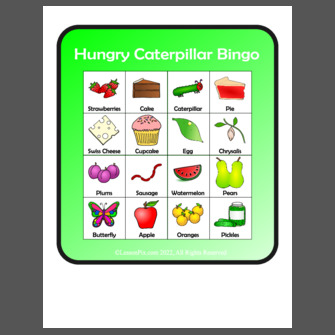
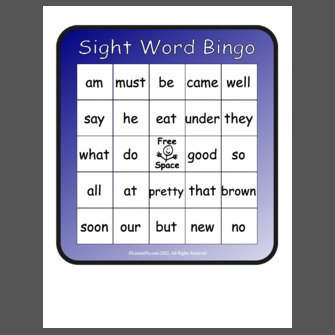
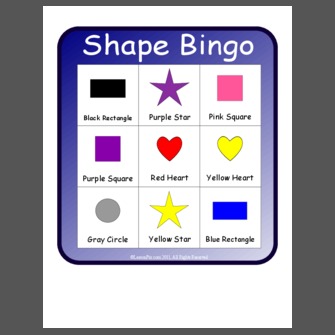
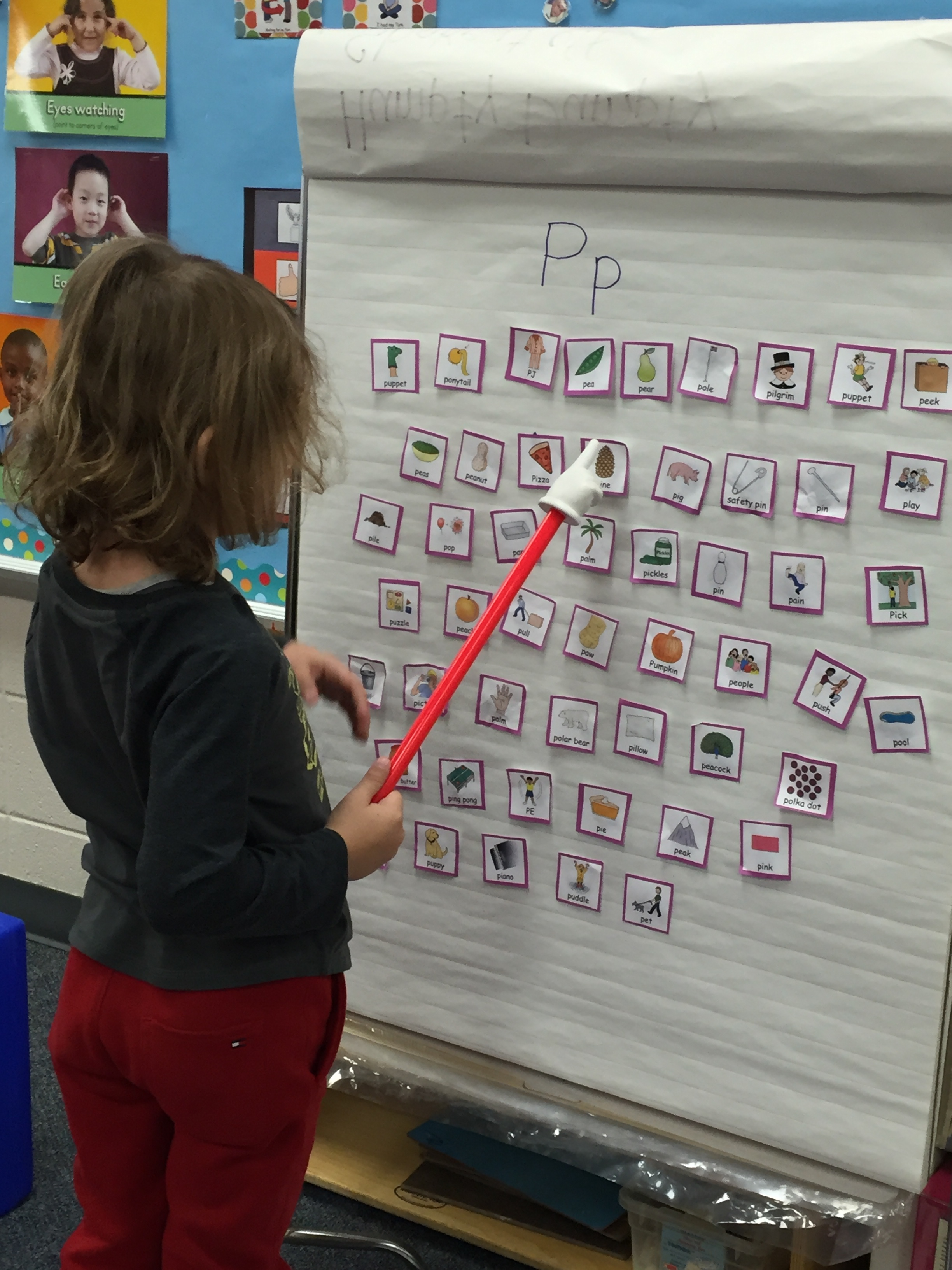
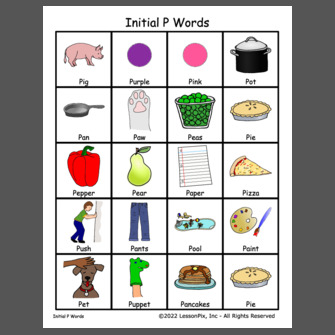
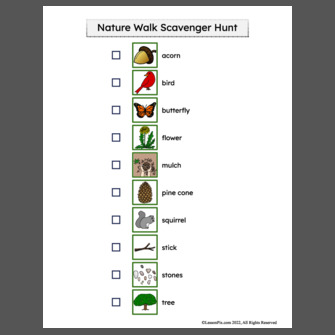
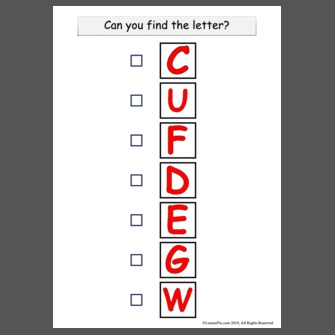
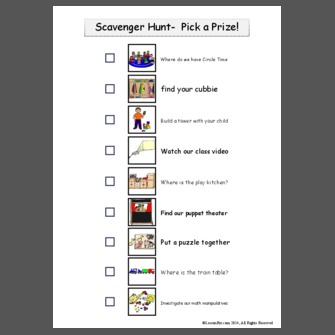
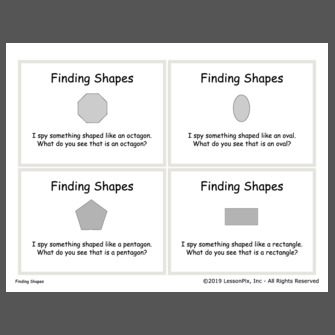
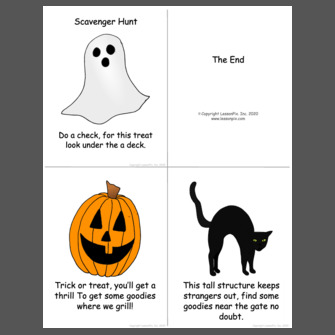
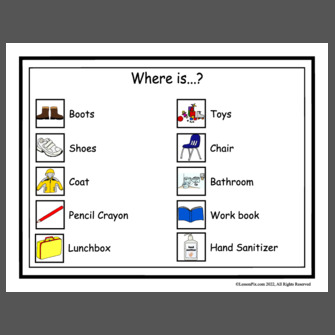
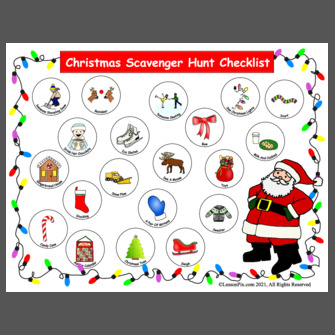
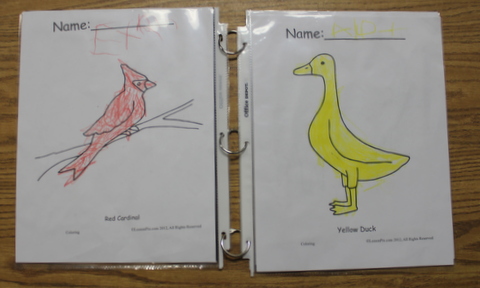
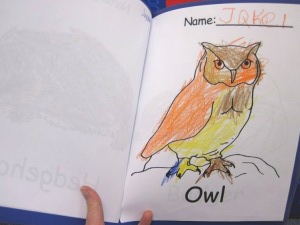
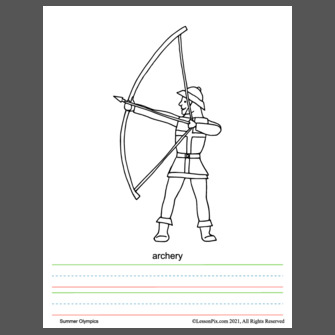
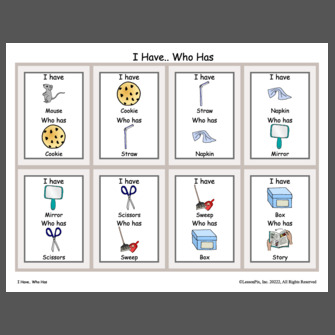

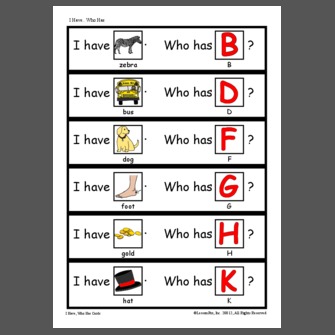
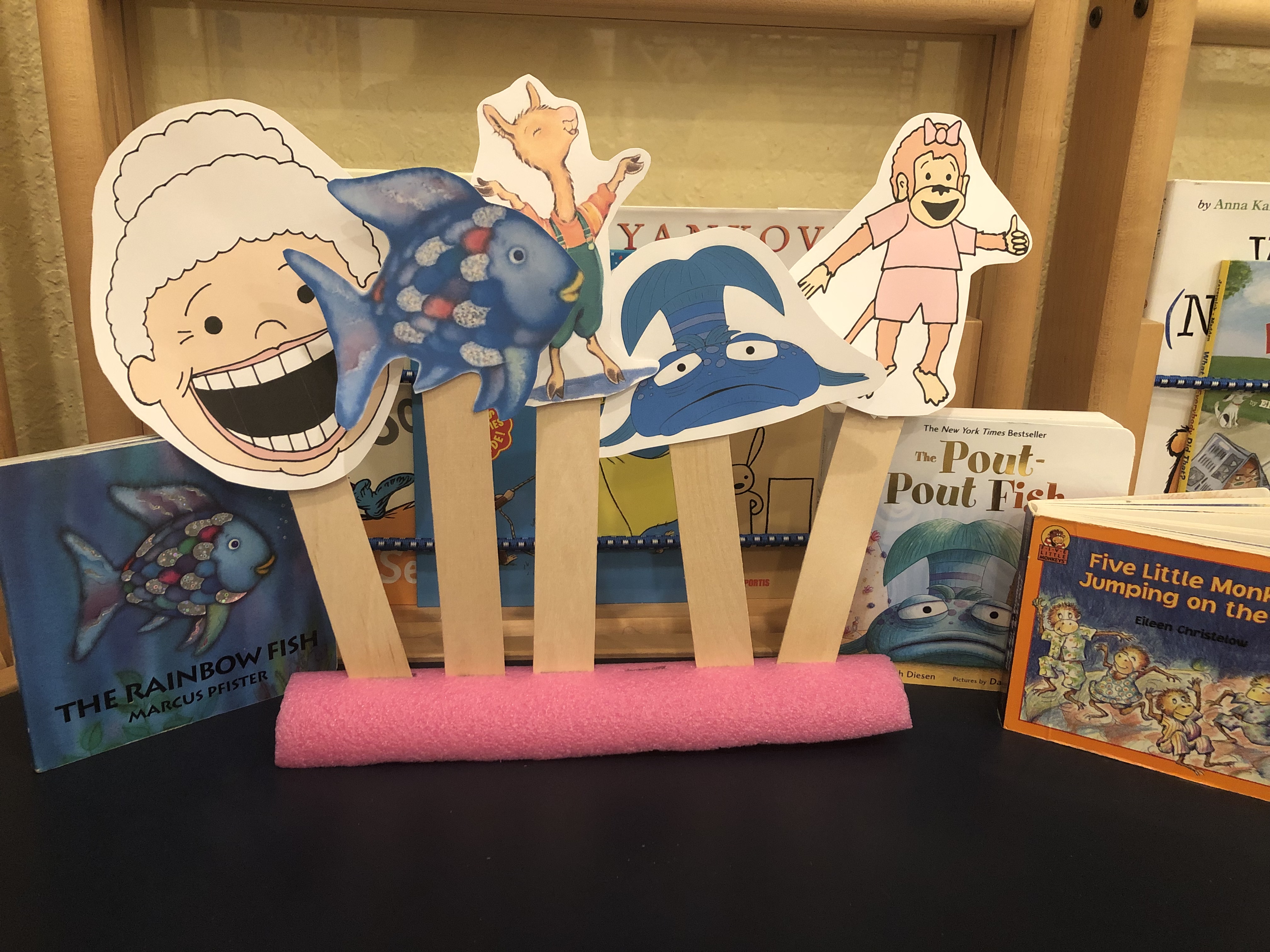
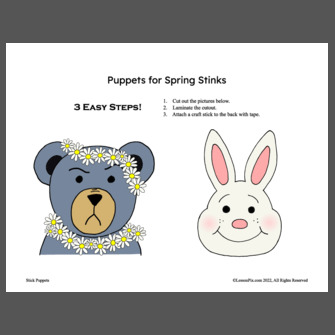
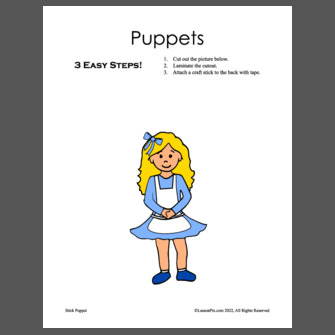
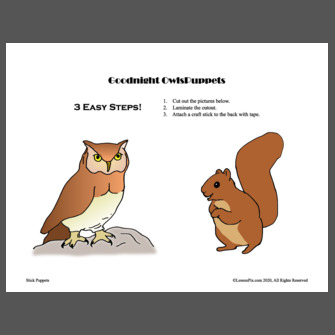
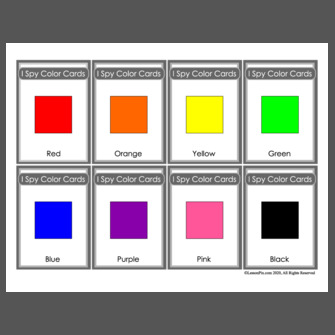
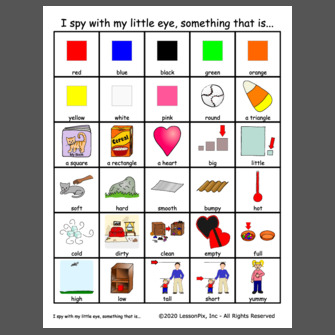
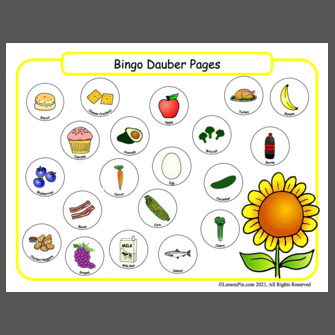
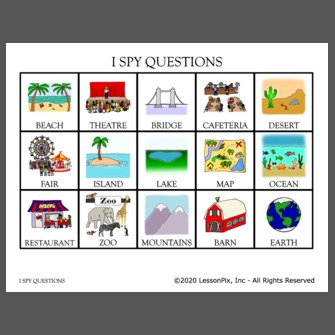
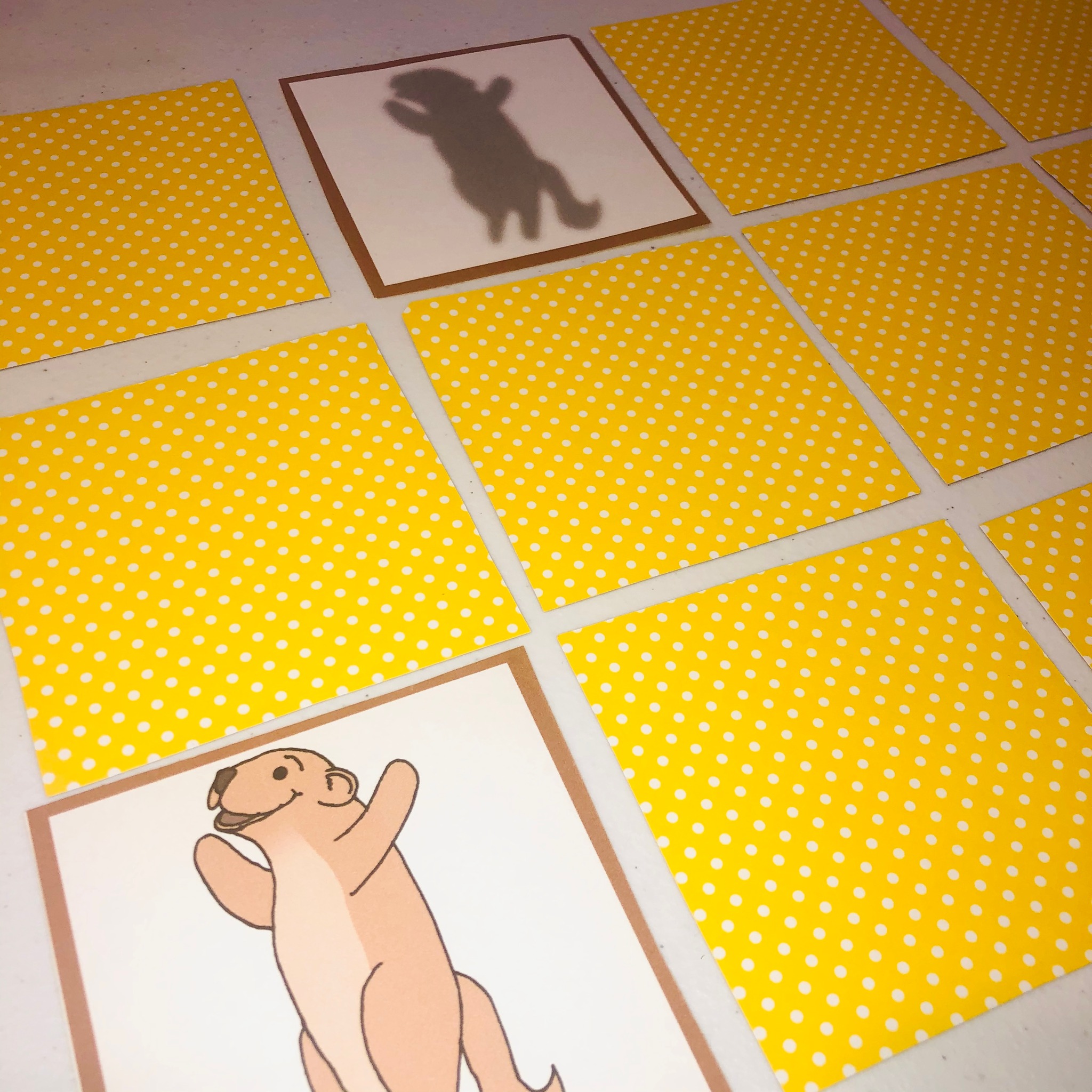
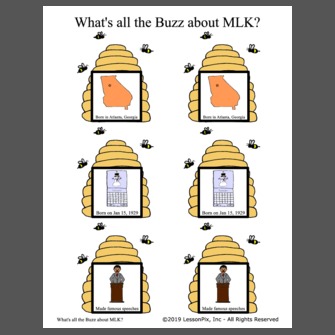
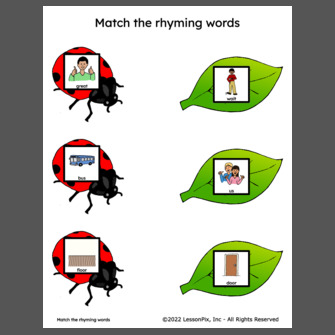

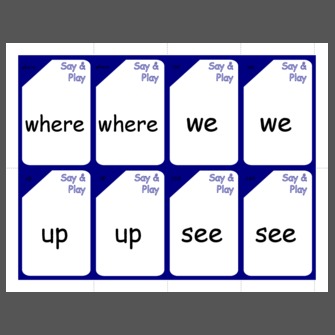
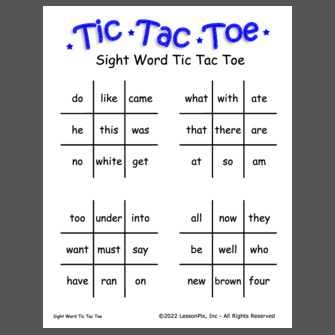
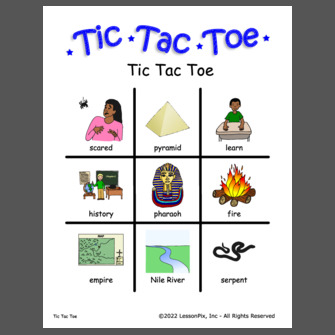
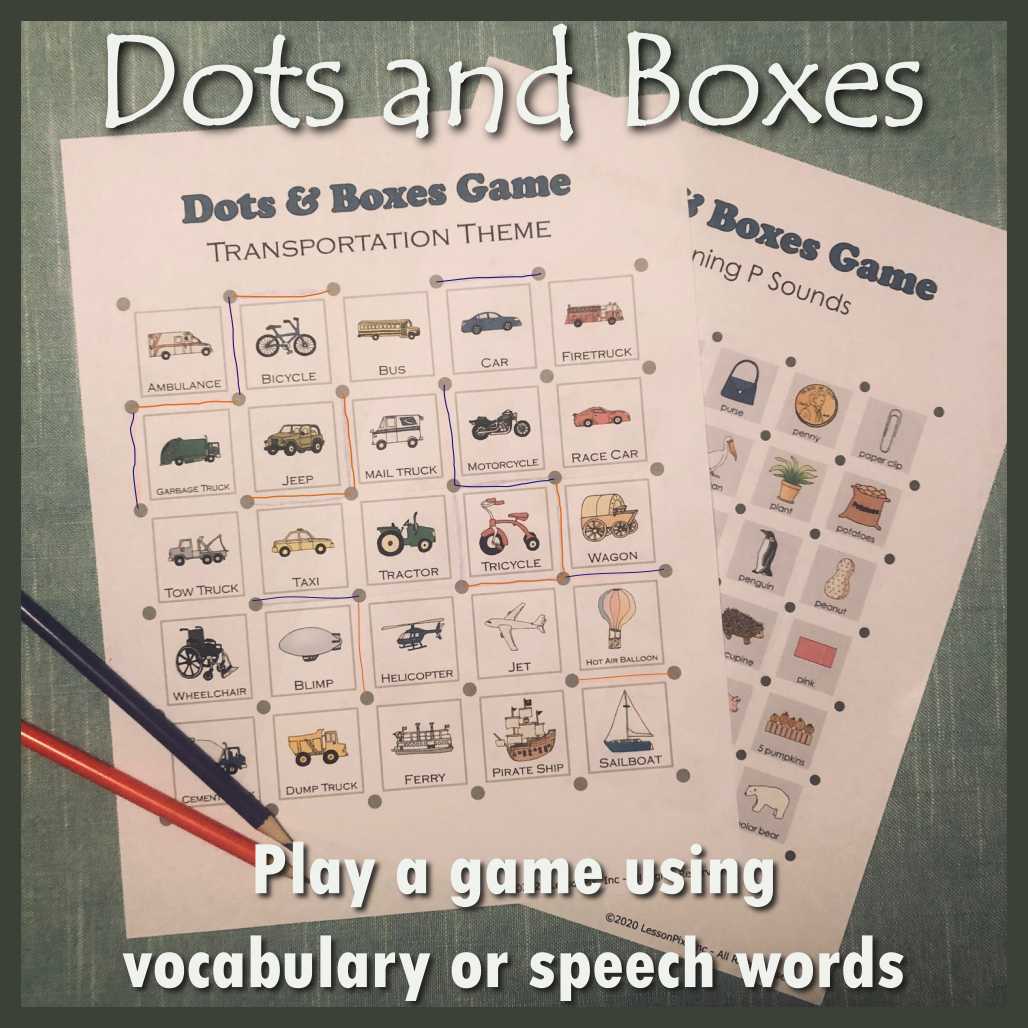

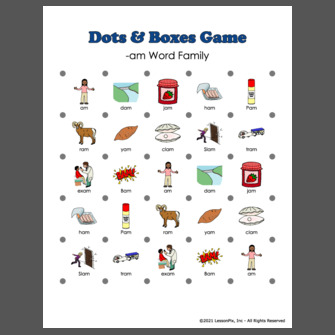

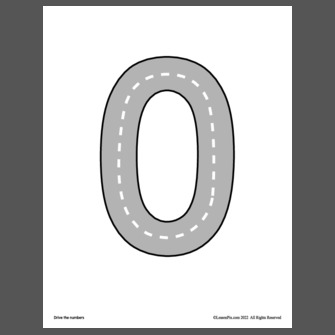
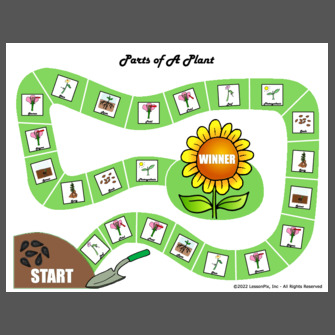
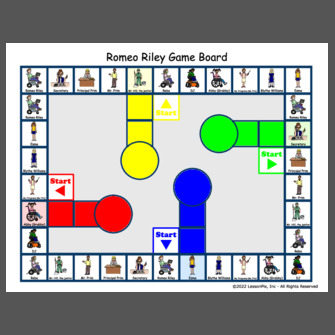
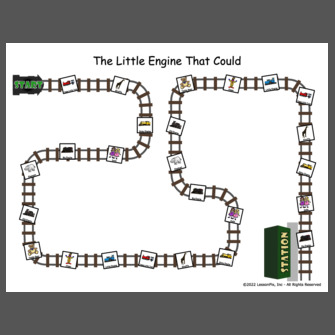
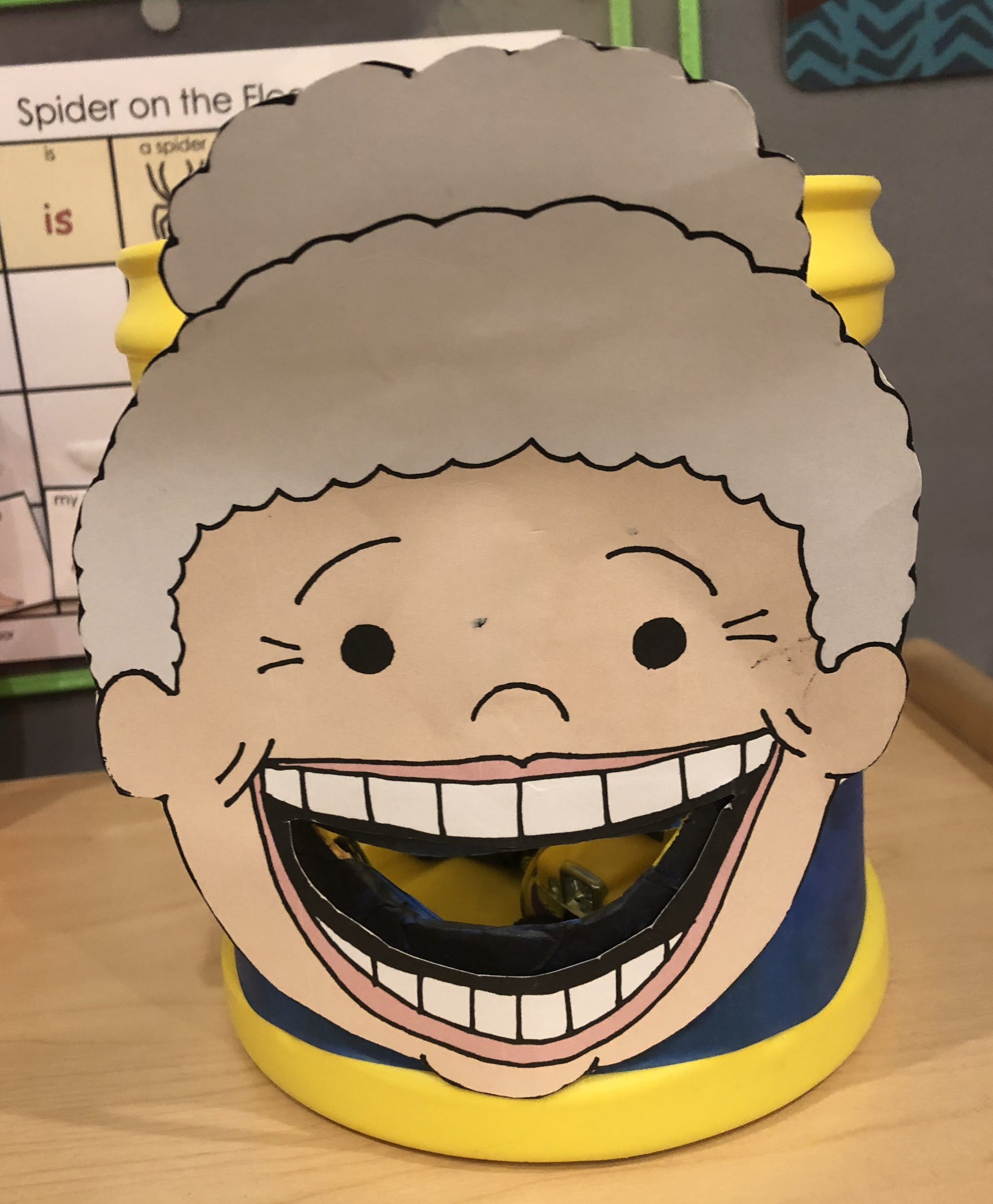
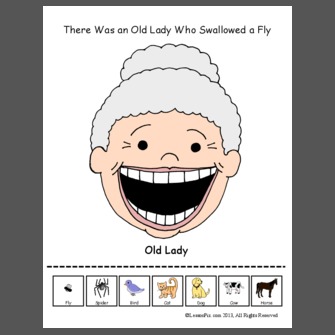
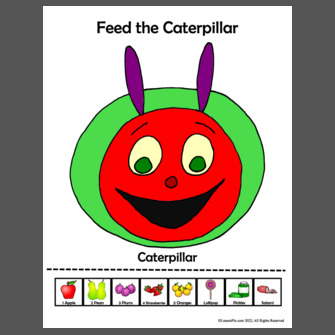
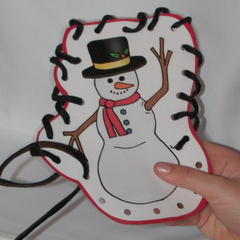
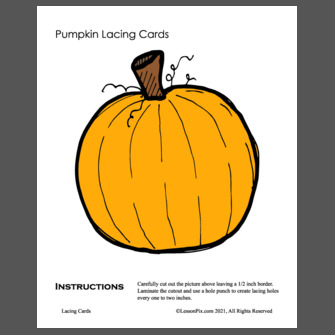
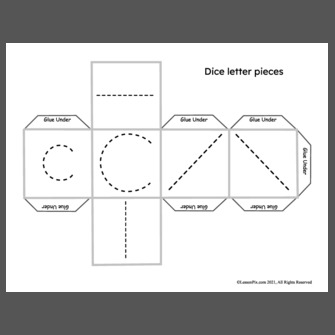


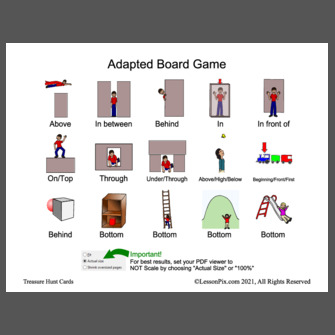
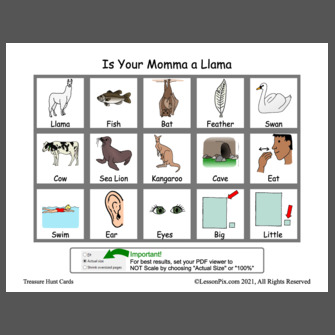
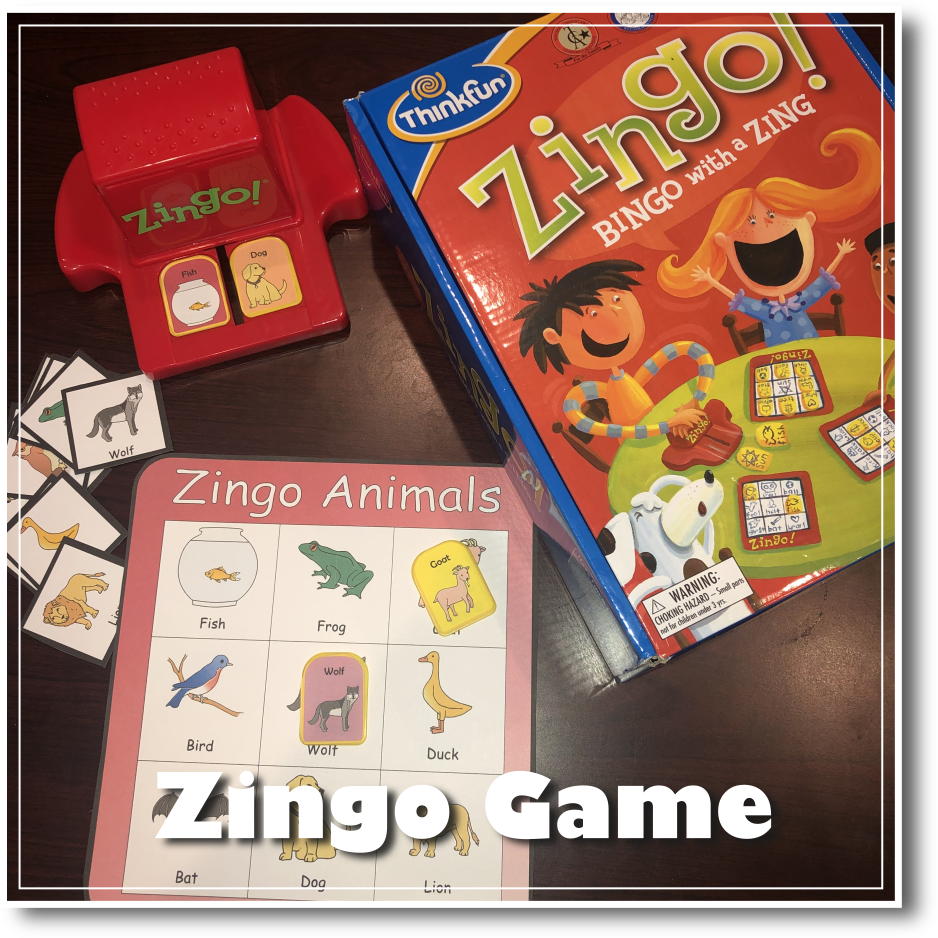
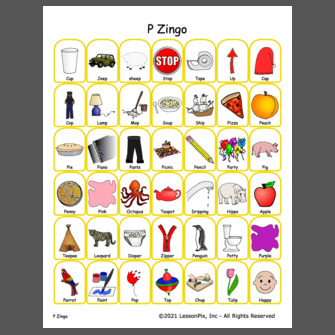
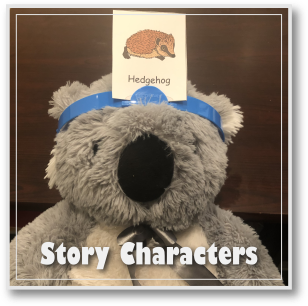
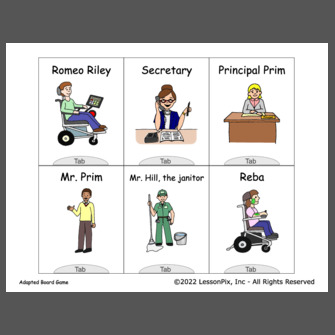

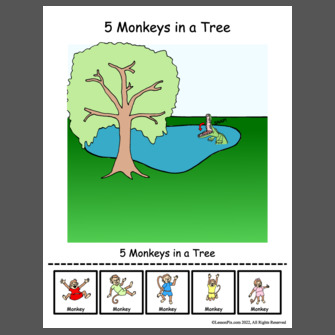
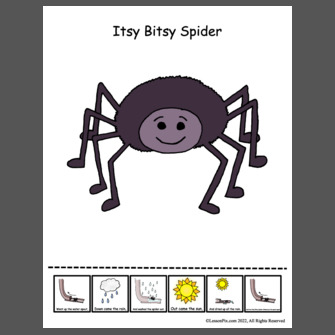
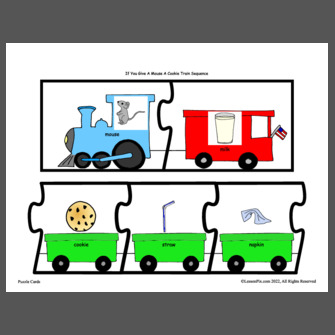
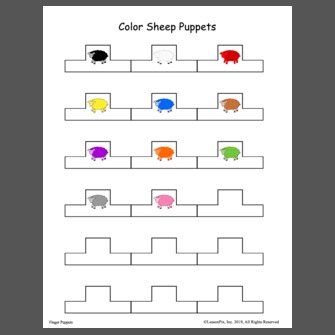

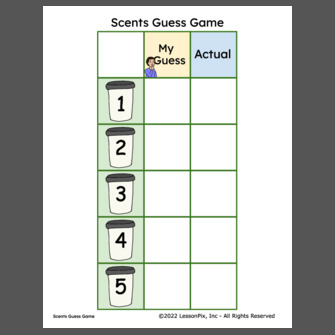
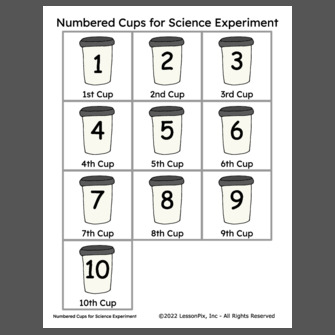
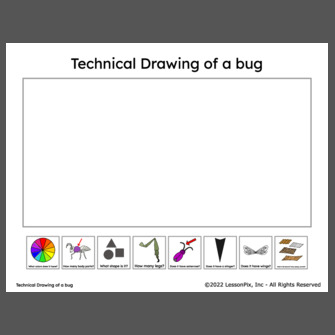
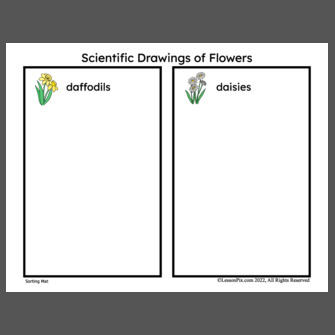
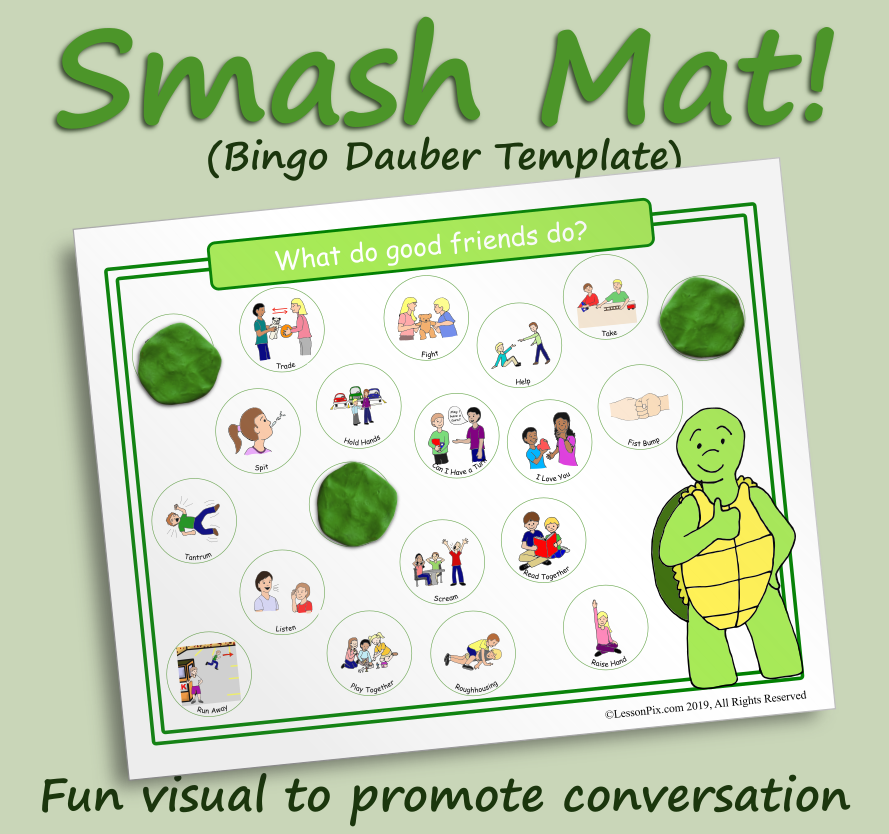
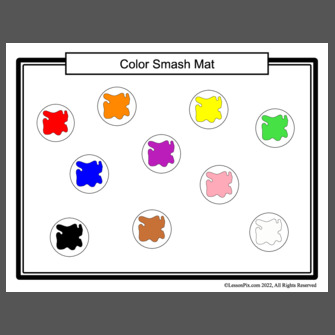
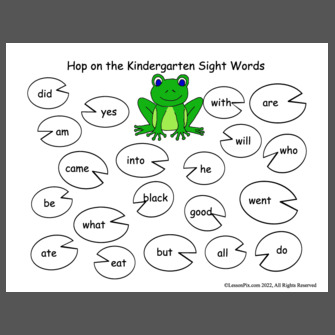


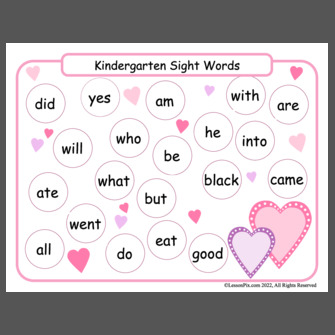
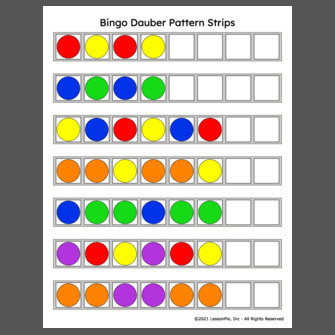
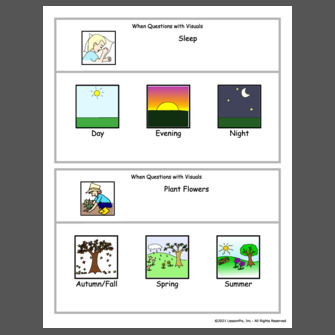
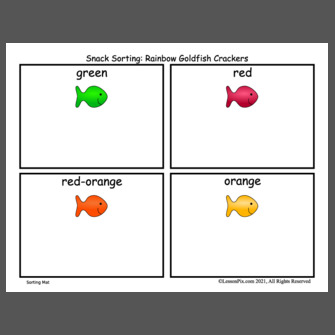
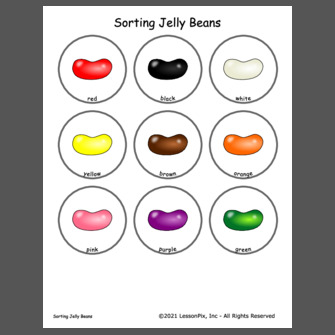
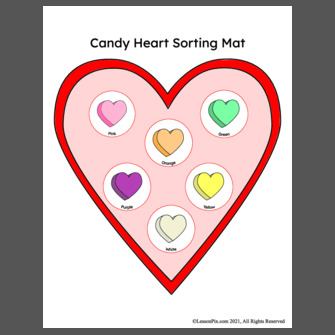
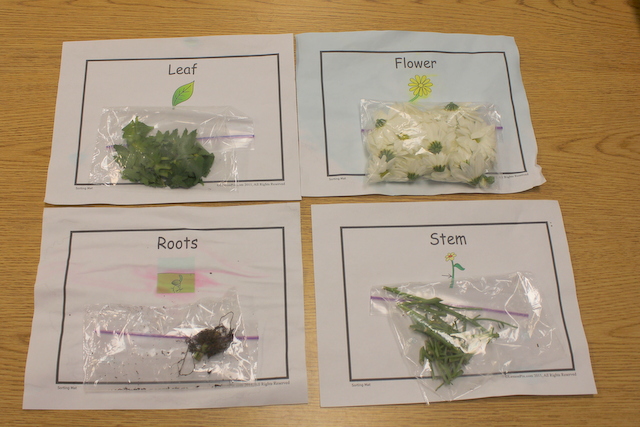
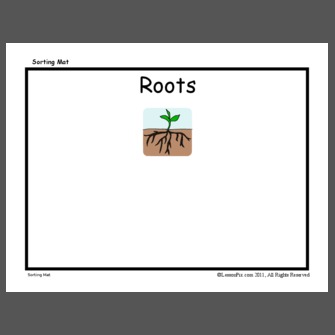
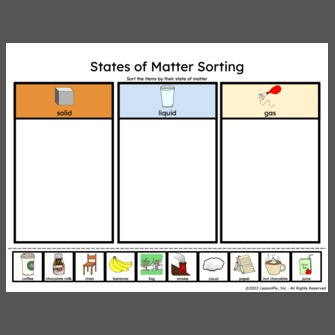
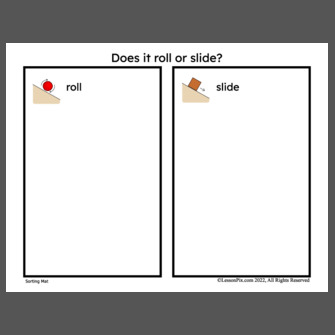
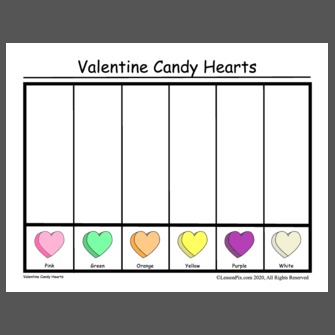

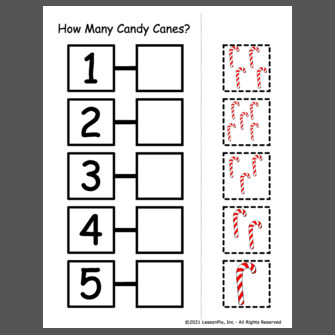
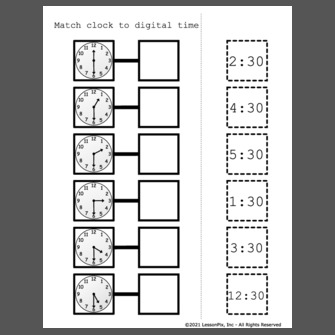
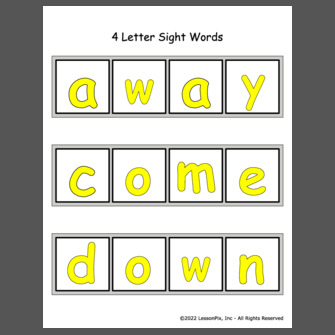
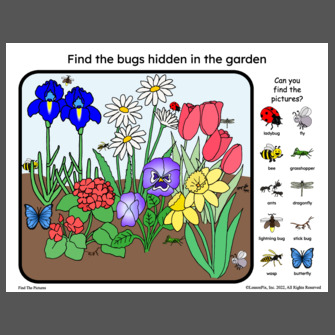
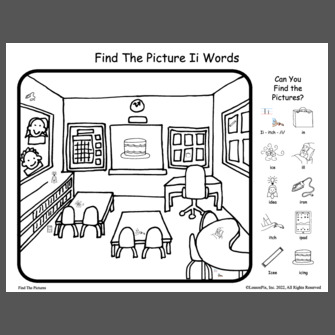


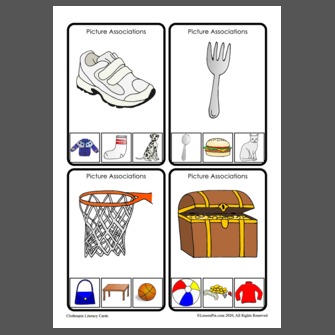
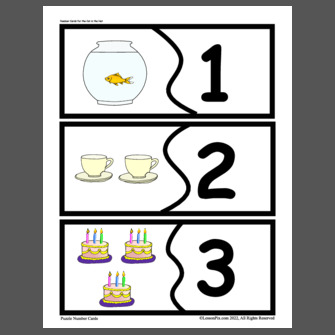
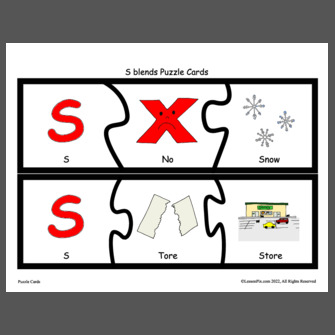

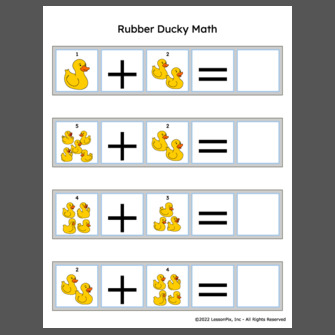
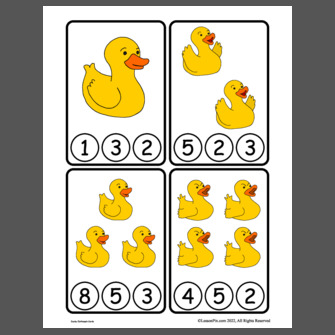
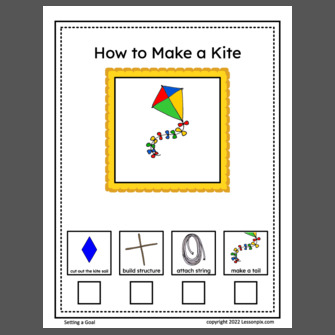
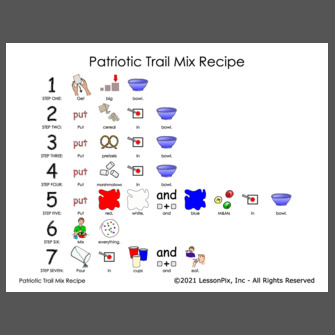
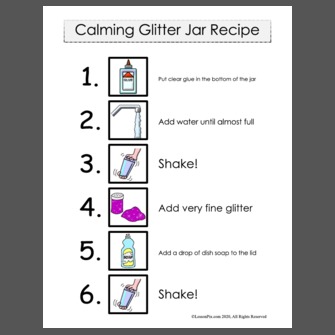
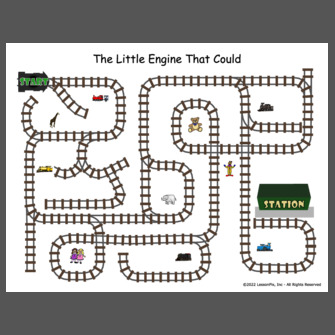
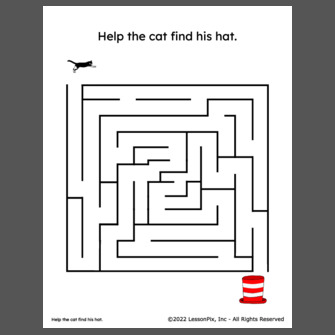

 Facebook
Facebook Twitter
Twitter Pinterest
Pinterest